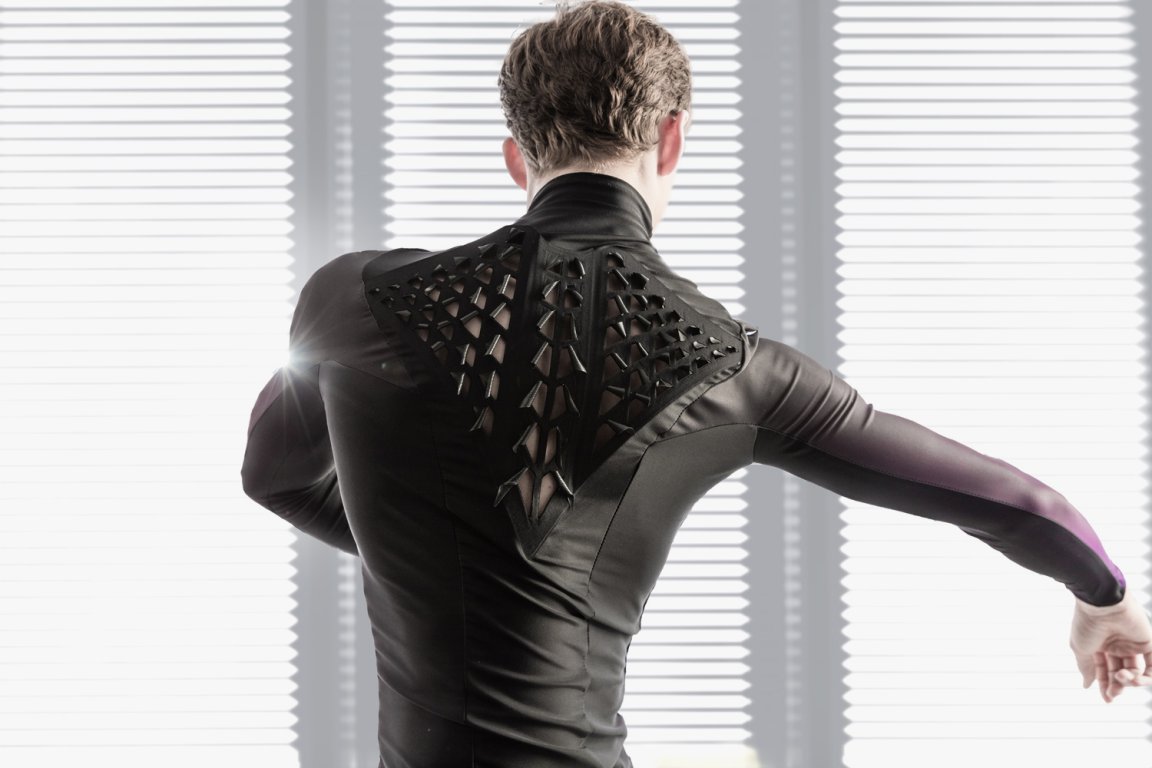
Alive and Breathing
If it was up to a team of researchers from the Massachusetts Institute of Technology (MIT), the next trend in sportswear would be clothes made out of living cells. You got that right, living microbial cells. With a design that looks like it came straight out of science fiction, the self-ventilating workout suit developed by the MIT researchers gives a new meaning to breathable and no-sweat clothing — plus, it comes with a pair of running shoes lined with the same living cells on the inside.
“[W]e propose to use genetically tractable microbial cells to create multifunctional, moisture-responsive interfaces,” the researchers wrote in a study published in Science Advances. “We hypothesized that microbial cells can be used as functional building blocks for constructing moisture-responsive materials.”
The cells that researchers used are the most common nonpathogenic strain of E. coli, printed onto latex sheets. The cells were then designed into ventilating flaps in the workout suit. These tiny thumbnail- and finger-sized flaps open and close in reaction to the heat and sweat generated by an athlete’s body. The microbial cells respond to changes in humidity, expanding when the body begins to sweat and shrinking when it cools down. Furthermore, the microbial cells used are durable and also safe to touch or even consume (but please, don’t).
Biologic from Tangible Media Group on Vimeo.
Cooler Stuff
“We can combine our cells with genetic tools to introduce other functionalities into these living cells,” explained MIT’s Wen Wang, lead author of the study. “We use fluorescence as an example, and this can let people know you are running in the dark. In the future we can combine odor-releasing functionalities through genetic engineering. So maybe after going to the gym, the shirt can release a nice-smelling odor.”
While this biofabric is pretty cool, both literally and figuratively, we can expect even more cool stuff as researchers gain access to new and innovative materials. For example, biofabrication has already opened up doors into 3D-printing human organs, and the development of biodegradable shoes. Outside the realm of biomaterials, there are what are considered to be the future’s super materials — most notably, graphene and its other iterations.
As for the self-ventilating workout suit, it’s definitely at the forefront of biofabrication and the use of biomaterials. “This work is an example of harnessing the power of biology to design new materials and devices and achieve new functions,” said Xuanhe Zhao, a co-author of the study. “We believe this new field of ‘living’ materials and devices will find important applications at the interface between engineering and biological systems.”